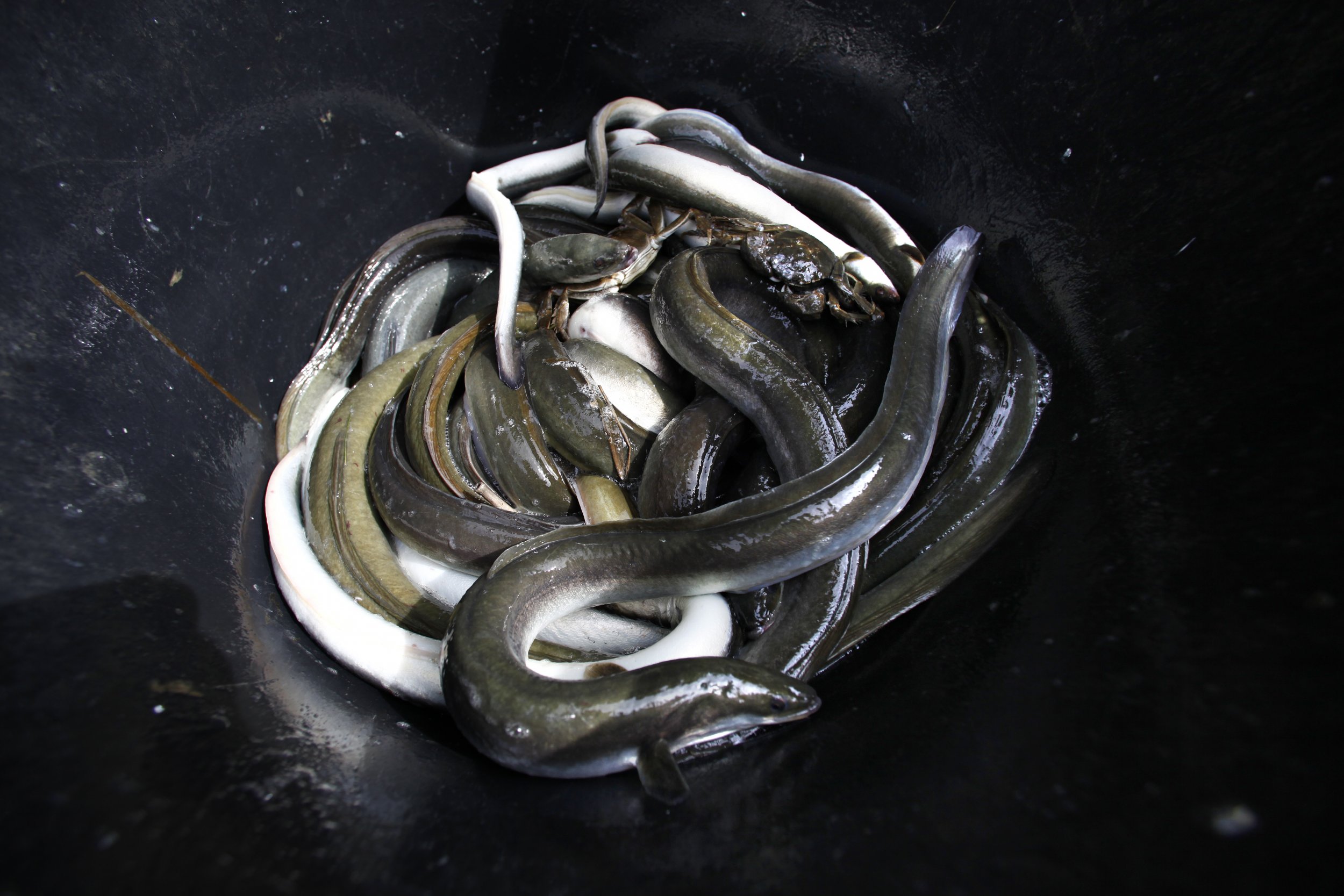
Living near humans has its pitfalls. Aquatic wildlife especially has to be wary of the pollutants that end up in waterways, whether by accident or on purpose, and those pollutants can have unexpected effects on the animals.
One of those pollutants is cocaine, and one of those species at risk is the European eel.
Scientists recently published a study on how illicit drugs affect eels, and found that cocaine in their environment could potentially affect their migration, and the survival of the species. They published their results in the journal Science of the Total Environment.
Researchers at The University of Salerno in Italy conducted an experiment with eels, putting them in water that had cocaine in it—a similar concentration of cocaine found in some rivers, National Geographic reported Wednesday. They let the animals live for 50 days in the coke-water, and then let them detox for 10 days in coke-free water.
They found that the animals reacted to cocaine in a similar way to humans, and became somewhat hyperactive. Otherwise, they appeared in good health. However, the cocaine had accumulated in various parts of the animals' bodies and caused damage. They experienced swelling and breakdowns of tissue, and their hormones changed.
For an animal such as the critically endangered European eel, these changes could spell disaster. Eels are adapted and used to a very specific set of behaviors, and any change in their bodies could disrupt their behaviors.
The cocaine induced an increased amount of cortisol in the eels, which consumes fat—fat that the animals need stored in order to migrate and breed. The increased dopamine levels from cocaine can make it take longer for them to reach sexual maturity. The swollen and degraded muscles could make it difficult for them to migrate to the breeding ground.
Even if the cocaine doesn't harm the eels enough to kill them, it's very possible that the substance can reduce their opportunities for spawning, which could be just as bad. With enough pollutants, future generations may see fewer eels, and the rest of the ecosystem may be affected as well.
Uncommon Knowledge
Newsweek is committed to challenging conventional wisdom and finding connections in the search for common ground.
Newsweek is committed to challenging conventional wisdom and finding connections in the search for common ground.
About the writer
Kristin is a science journalist in New York who has lived in DC, Boston, LA, and the SF Bay Area. ... Read more
To read how Newsweek uses AI as a newsroom tool, Click here.








